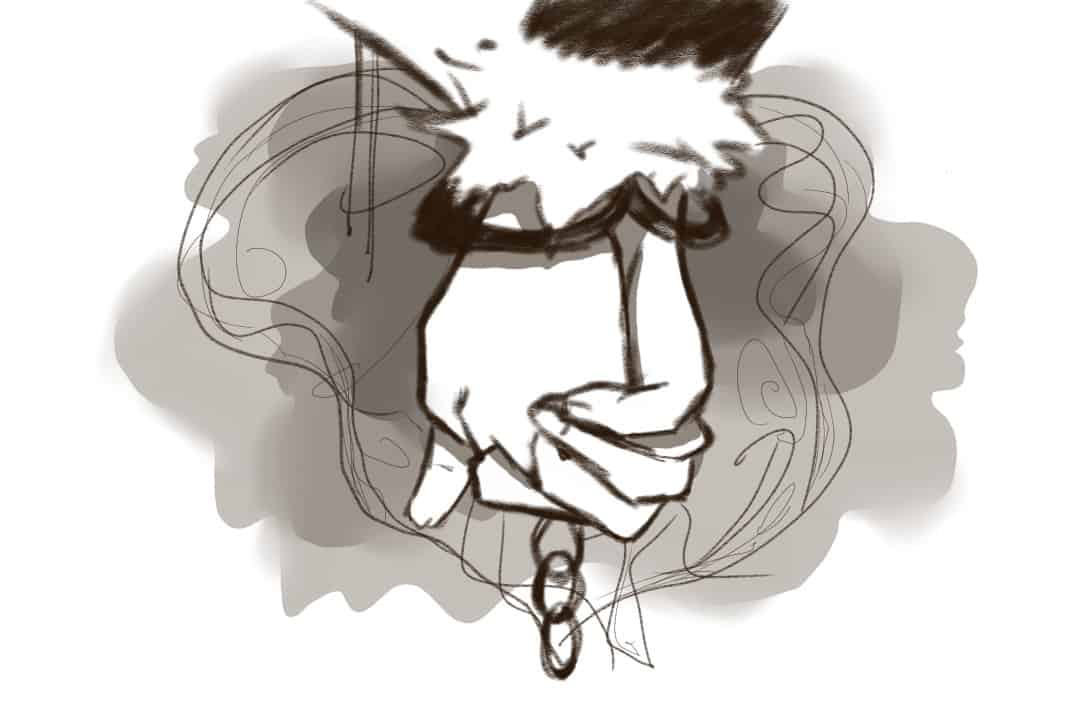As our precious sunny days trickle out and are replaced with 4:00 pm sunsets and indigo rainfalls, it feels like no amount of pumpkin spice lattes can quench the seemingly universal desire to get into a relationship. Every year, there is an onslaught of Hallmark movies and sweet, cuddly ads about warm fireplaces and cute winter accessories; thus, we have cuffing season.
So, what exactly is cuffing season? Generally, it’s considered to be the period of cold weather, approximately from October to April, which inspires a general need for coziness and comfort. The urge to stay inside in winter may be traced back to our biological instincts to work hard during warm months and rest during cold ones; the longer nights, chilly temperatures, and scarcity of sunlight all contribute to lower serotonin levels and higher fatigue. It’s only natural that sometimes the only thing we want to do in the winter is curl up in bed and drink hot tea.
Cuffing season is a response to this general lack of motivation and low level of joy. Even so, it’s a modern idea: the goal is to get into a relationship just for the duration of the colder months and then be “un-cuffed” in time to enjoy your freedom in the spring and summer.
Cuffing season tends to get mixed reactions. On one hand, we all feel a little sadder and lonelier when it gets cold and dark outside. It’s only natural to want someone to snuggle up with, especially when going out with friends can be so much effort. Some therapists even recommend “getting cuffed” during the winter season as a way to circumvent isolation. Many people also suffer from seasonal depression, and finding a temporary companion can be a good way to combat it. It’s even been documented: a study on Dating.com found that user activity on dating apps sees an increase between November and February by 30 per cent!
However, does it really make sense to date someone to feel a little less lonely? We all have to come to terms with winter eventually, and maybe getting a cuddly dog or an extra blanket is a better solution.
Though the commonality of fleeting relationships is fairly unique to modern dating, feeling lonely and wistful in the wintertime is not necessarily anything new. Consulting therapists and reading articles can explain a lot about why we get so lonely, but if you aren’t having any success getting cuffed on dating apps, maybe the cure to these feelings lies in the abundance of media you may be able to relate to.
The connection between romantic desire and physiological needs like sunlight and food is not uncommon in poetry and music. Whether this is an association we are inherently drawn to or one that resonates because it has been so prominent in media, it’s still unsurprising that we have a higher need for companionship in winter.
A line from Preston Pablo’s song “Flowers Need Rain,” exemplifies this: “I need you like the flowers need the rain / I need you like the sun when the clouds turn grey.” Gloomy weather makes him lonely too!
An older example is Amy Lowell’s poem Diya: “…to need / Me through and through, as flowers need the sun.”
These are surprising sentiments, at least to me, because the term “cuffing season” itself actually sounds pretty binding and restrictive, considering it’s referencing the idea of being handcuffed to another person. Ideas like these can definitely help to make sense of some of the emotions we experience when the seasons change. How can we survive winter without love, really, if it is already as vital to us as sunlight and water?
“Bryant Park at Dusk” is a poem by Geoffrey Brock written from the perspective of a lonely man walking on a fall evening, who experiences a particular twang of sadness observing a woman reading at the park. “And the grass grew green again, and the woman / Reopened her eyes to read.” These are the poem’s last two lines; though there are very few descriptions of seasonal imagery in the poem, to the speaker, the movements of a beautiful woman bring about springtime. We can often find comparisons in art that tie love to the blossoming of life, and heartbreak and loneliness to darkness and decay.
These comparisons seem commonplace but can help understand the strange idea of cuffing season. The fleeting nature of a cuffing season relationship might seem counterintuitive to the comfort and stability they are meant to provide, but perhaps poetry says otherwise. Even Shakespeare’s famous “Sonnet 18”: “Shall I compare thee to a summer’s day?” cites his lover as a bringer of warmth.
So, should you start looking for someone to cuff yourself to this winter? Well, it certainly seems like we might all need some extra love, especially as we head into finals season. But, maybe you shouldn’t tether yourself to someone just for body heat unless they truly bring a summer’s day to your winter’s 5:00 pm.



No comments to display.